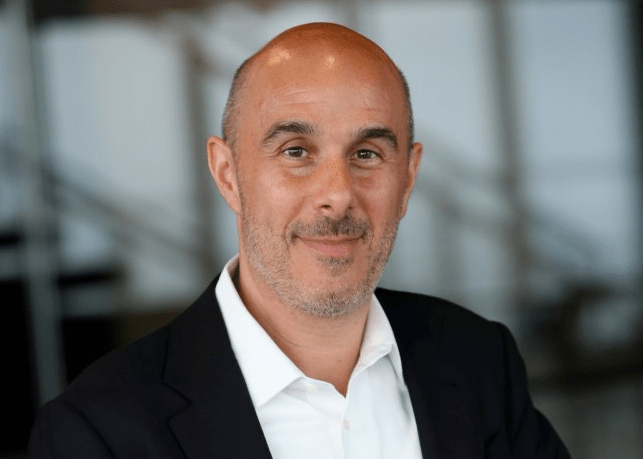The inaugural debate on Tuesday evening between President Donald Trump and former Vice-President Biden was, as some colorful media types have pointed out, “an epic moment of national shame,” “a hot mess inside a dumpster fire inside a train wreck,” and in the immortal word of CNN’s Dana Bash, a “sh*tshow.”
But it was also something far more prosaic: a rerun.
The 90-minute bout, despite its fresh undertone of nasty, was just plain predictable—a “thrilla’ in vanilla” in which both candidates repeatedly fell back on well-practiced talking points. That was particularly the case with the President, whose lines were so familiar that it seemed as if they’d been said a thousand times before. And at least in the aggregate, they probably had.
In the opening question, moderator Chris Wallace of Fox News asked Mr. Trump why he felt justified pushing through his nomination of Amy Coney Barrett to the Supreme Court, just weeks before the election. Said the President: “We won the election and we have the right to do it, Chris”—which sounded a bit like what he said to Fox News eight days earlier (“We won the election and we have the right to do [it]”)…and what he told a TV reporter in Dayton later that day: “we have the right to do it.”)
When asked about his efforts to kill the Affordable Care Act and its provisions protecting those with preexisting conditions, the President said, “The bigger problem that you have is that you’re going to extinguish 180 million people with their private health care.” The notion that the ACA would extinguish anyone (which is illegal)—or that the modest fixes Biden has proposed might do that—is patently false. But the line is like a musty old tee-shirt the President can’t or won’t throw away.
It should be noted—as Mr. Trump noted in Tuesday’s debate—that he fixed Obamacare too—an essential step before extinguishing it. “Excuse me,” said the President politely, “I got rid of the individual mandate, which was a big chunk of Obamacare.” And if that caused a yawn for some at home, it’s probably because the President has been telling that tale for years. As he regaled a Town Hall audience in Scranton in March: “First of all, I got rid of the individual mandate, which was the worst part of Obamacare.”
In the debate, Trump said Biden didn’t want him to “ban China, which was heavily infected.” Neither did NIAID director Dr. Anthony Fauci, it seems—but Trump told his friends at Fox News back in July that he overruled America’s best-known infectious disease expert. As for “heavily infected China,” the President “stopped it”—just like he informed an audience in the White House Rose Garden this summer.
Perhaps the President’s proudest moment in the debate came when he told American voters: “I’m cutting drug prices. I’m going with favored nations, which no President has the courage to do because you’re going against big pharma. Drug prices will be coming down 80 or 90%.”
The news felt as fresh as it surely did in October 2018, when the President included it in remarks he gave at the U.S. Department of Health and Human Services. “Some people call it ‘favored nations clauses,’” the President explained. “We have them in business. We have them in a lot of different contracts that I’ve seen over the years and been part of…This is a revolutionary change. Nobody has had the courage to do it.”
Mr. Trump likewise talked about it in July 2019 on the South Lawn of the White House, as the rotors of Marine One twirled in the distance: “We’re going to be announcing something very shortly—a favored nations clause.” He spoke rapturously about his favorite favored nations plan on July 24, 2020 (“This has to do with common sense and courage, to be honest—and courage.”) And then at a press briefing four days later. And again on Aug. 3. (“I was called by senators. I was called by congressmen: ‘Please don’t do this.’ But big pharma doesn’t mean anything to me other than we want them to do a great job.”)
Days later, on Aug. 6, the President told workers at the Whirlpool Corporation Manufacturing Plant in Clyde, Ohio, that his simple plan could drop their prescription drug prices by “50, 60, 70 percent, maybe more than that.” He then shared the good news in between rounds at his Trump National Golf Club in Bedminster, NJ. And he even took time to offer a few quick thoughts about “favored nations” while signing a proclamation honoring the 100th Anniversary of the ratification of the 19th Amendment, which granted women the right to vote: “We’re going to have to pay much, much less—like numbers—and it could be 70, 80 percent,” said the President. “So we’re not talking about games. And nobody had the courage to sign it. And a lot of people didn’t even know about it. A lot of people.”
And so it went in Tuesday’s debate, with virtually every talking point of the President’s feeling limp from overuse. Mr. Trump’s boasts and barbs were like worn tires, unable to find any traction.
The President’s failure, when prompted by Mr. Wallace, to condemn white supremacy was an outrage. His constant interruptions were churlish. That’s what has drawn the attention of most of the critics so far. But the bulk of what the President said on stage Tuesday evening falls into another category—and one that may ultimately turn off more voters in the end: It was old and stale.












